
Muse & Mastery
Hosted by Aliya Cheyanne, Muse & Mastery is a digital sanctuary for creative thinkers, makers, and seekers. Each episode explores how we can live, create, and evolve in alignment with our purpose.
Muse & Mastery
Faith & Freedom on the Creative Journey ft. Chimdi Ihezie | Ep. 54
Chimdi Ihezie, a creative coach, facilitator, and YouTube creator, joins us to share her remarkable journey of transformation from a traditional career in public policy to embracing a vibrant, multifaceted creative life. Discover how Chimdi's leap from the nonprofit sector to building her own coaching business was fueled by a desire for authenticity and self-discovery. Her story highlights the pivotal role of travel and spiritual growth, offering insights into how connecting with community and embracing change can lead to profound personal and professional growth.
Watch this episode on YouTube!
More from Chimdi:
- Subscribe to Chimdi's YouTube channel!
- Follow Chimdi on Instagram @chimdi_ihezie & @coachingbychimdi!
- Visit chimdiihezie.com.
- Join HelloCreator's Digital Creator Track | Community Sessions with Chimdi Ihezie here.
Theme Music:
She No Dull Beat by Nana Kwabena
Festivities in Belize by RAGE Productions
Enjoy the episode?
- Share it with friends!
- Send a voice note or text!
- Rate & review the podcast!
Follow @museandmasterypod on your favorite SM platforms!
Watch full interviews here on YouTube!
Join me over on Substack!
Check out my favorite brands and snag a discount!
Grab a guided journal here!
Are you a creative, solopreneur or entrepreneur who’d like to be featured on Muse & Mastery? Let me know here!
Hosted by Buzzsprout. See the Buzzsprout - Privacy Policy here.
Welcome back to the Prolific Hub podcast. I'm your host, aaliyah Cheyenne, and I'm so excited today to be joined by Chimdi Ehezie. I'm excited to talk to you and just learn more about your creative journey, your spirit and your work. I'm so excited to have you on the show. So, before we jump in, I would love to kick it over to you to share a little bit more about who you are in the world today and how you'd like to be known and seen.
Chimdi Ihezie:Thank you. Well, thank you so much for inviting me to your show and it's really beautiful how we met. You joined a weekly creator roundtable that I host for Hello Creator, which is this AI startup focused on supporting creators to make the creative journey less lonely. Startup focused on supporting creators to make the creative journey less lonely, and what I love about the way my creative journey has developed is that, you know, I just focus on doing what I feel inspired and called to do. I focus on doing, you know, my inner healing, spiritual works that I'm really just embodying the light to the best of my ability and then, very naturally and effortlessly, things come into my life that then allow me to meet great people and then have great conversations and then, you know, bring more people into my orbit and kind of keep the light going. So I love that about how we met and that it led to this conversation, and so I would describe myself as a creative coach and a facilitator.
Chimdi Ihezie:I'm also a YouTube creator and I think you know you know that world of being multifaceted and multi-passionate and, as I connected to like my future as a creative, what's coming through is being a retreat, you know, in-person retreat facilitator doing those kinds of work and, you know, focusing on women who are creative and who also have a deep sort of spiritual connection or curiosity.
Chimdi Ihezie:And yeah, I primarily speak about my spiritual journey, healing journey, on my YouTube channel, but it's very broadly a lifestyle channel as well, so it includes things like traveling to Mexico, where I am now as we record, growing my hair and shaving it off, you know, quitting weed and then relapsing and then quitting again. You know, leaving my nine to five, which I did a few years ago and balancing that journey of being an entrepreneur and growing a coaching business and all these different things. So it's kind of a grab bag of whatever I'm going through at the moment and it's allowed me to connect to some really beautiful people and, as folks tell me, really inspire them to live in their own authenticity. So that's sort of what I would say is me at the moment. So that covers it.
Aliya Cheyanne:Yeah, I love that. Thank you so much for sharing all of that so beautifully. It is really wonderful how we met. I will also say, just shout out to my girl, iman, and Be Free my Love, because I would not have found out about hello creator without her. So I'm glad that I can be in that space and under your incredible, just guidance and leadership with that group.
Aliya Cheyanne:But also just hearing the stories of, like a number of different creatives and what we're struggling with, what we're overcoming, like how we're putting ourselves out there, like I, I think it's such a wonderful space so I'm excited to be involved in that. You touched on so many things that I feel like not only I can relate to, but maybe a number of folks listening to this show can relate to Just pouring into what you feel in the moment, walking away from your nine to five and growing your coaching business, really working on sharing more about your lifestyle and your experience and your healing journey and your spiritual journey, like a number of these things that I can even relate to. Growing my hair out and cutting it off I cannot tell you how many times I've done that.
Aliya Cheyanne:So, yeah, I'm currently in the growing out stage right now Low key, want to cut it up. There's just so many things there. I would love to step back a little bit and just learn a little bit more about who you were in the place. You were in when you were even making the consideration to leave your nine to five and really pursue and build your own thing. Can you take us back to that period and that decision?
Chimdi Ihezie:Yeah, so it was back in 2021. And so I studied public policy in school. I got undergraduate and master's degree really focused on government and politics and public policy, because I in my heart thought that would be the way to affect the most change. You know like I was in college when Obama was elected and I saw the ACA the Affordable Care Act, you know pass, so I was so inspired and motivated and I saw the way policy change could make huge differences in people's lives and so that was sort of my main focus for a long time was working in that field and I worked basically eight years in the nonprofit space and different organizations focused on supporting educators and making better policy, supporting healthcare organizations, like supporting workers all these different fields and very blessedly, it was all remote, so I've only ever worked for remote organizations full time.
Chimdi Ihezie:And what was amazing is that this experience it allowed me to also do a lot of traveling. So I went from being very American and I think I still am very American, but American in the maybe stereotypical way where you really do think the whole world revolves around you and you don't have so much interest in what's happening outside of your own country and you actually think you really are the best country and maybe you didn't but freedom, you know, like all that kind of stuff. And then, as a result of these jobs, I was able to actually start traveling and seeing more of the world. And that's when it started to dawn on me oh, the way I've been living my life isn't actually as great as it could be and there's actually so much more. And so simultaneously, sort of, I had this creative outlet on my YouTube channel because in working in the nonprofit space, started working with small nonprofits and then gradually they grew. But there was always the sense of you know all these fingers in the pie, you know everything was so collaborative and I wanted something that was just mine, that I could just pour into creatively and it was just for me. And YouTube was that and so, but I always kind of saw it as a hobby. I was like this is the thing I'm going to decide and the real work is the policy work.
Chimdi Ihezie:And then going into you know, pandemic COVID 2020, I felt so grateful to have a job. Folks were losing their jobs left and right. I felt so grateful to already be working remote. I didn't have to go through that transition of figuring out how to do it. The whole organization already knew how to do it, and so I was like, wow, I'm really sort of blessed to have this opportunity. This isn't something I want to give up and lose.
Chimdi Ihezie:But as I continued you know, working I realized, as I look at my life and all of the blessings at the time I lived in LA I was like I'm so grateful for so much of my life and I've accomplished so many things. I've literally traveled all around the world. Like all these amazing things, the only thing like if I were to get COVID and die tomorrow. The only thing I didn't do was try to really be a creative and actually quit this job which, for as good as it was, did also have some challenges in terms of the type of work and, ultimately, the felt sense of actually making a difference. And so in March of 2021, I was like I'm going to get out of here and I had built up my savings. At this point I felt very resourced and so I quit my job.
Aliya Cheyanne:Point I felt very resourced and so I quit my job. So that's where I was. Yeah, wow, that's a lot, but it's also like I feel like it may be the space and the grace to make the changes that you wanted to make from building your savings up, from already having the flexibility of being remote and making that transition, but also taking a step back during that time to really think about what you wanted and what you needed and how you could be feeling more fulfilled in life. And I think that's so great and so beautiful and I'm glad that you were able to make that change in that transition. That's so cool.
Chimdi Ihezie:Yeah, and it really was.
Chimdi Ihezie:I really credit that role because it was also my first experiencing, first experience as a coach and doing coaching work and I had that sense before I started of like who am own guidance and leadership and you're just sort of asking the questions to help them get there, and having this experience of coaching hundreds of folks within this program, it really gave me the confidence to say I can take these skills I've developed as a coach and marry that with the work I've been doing on YouTube and offer creative coaching to people.
Chimdi Ihezie:And if it hadn't been for that role, I don't think I don't know if I would have thought or believed that I could do it and would have been able to, you know, get those first testimonial clients and eventually get paying clients, and then be at the point now where you know I'm able to take on clients and then do work you know, do coaching work with the consulting way for other companies. So I think often when we're in a job that isn't maybe the best fit, it can be tempting to sort of like throw the baby out with the bathwater and say, oh, it's the worst job ever and all these things. But actually I can see how every single step in the path really did support me in going to the next place. So ultimately I do have a lot of gratitude for those roles that I had, even though I eventually left them.
Aliya Cheyanne:Yeah, that's so beautiful and I think that's really profound too, because a lot of times people and I've been guilty of this too get stuck in the I hate it here at this job, like I feel like it's stifling my creativity, like not everybody is good at managing the balance of, you know, pouring into a hobby or like exploring an alternative avenue while they're still working and then building that out, stepping away from it and building it out, and I think that's really profound, that you're able to do that and do that so masterfully and be able to coach other people and lead other people in exploring their creative pursuits too. I think that's really interesting. I have worked in policy and communications and nonprofits for a really long time and that's kind of pigeonholed me in a way in terms of, like, the skill set that I've gained, the work that I do. So even in my like consulting work, I'm still working with them in some capacity in a communications role, like building that strategy for those organizations. But I love the creative hobbies that I have from the side way more, you know.
Aliya Cheyanne:So it's a challenge of balancing those things and learning how to do that well and looking to examples of people who have done that well, to really learn and model strategies for making that better. So thank you for sharing that. I would love to hear a little bit more about your spiritual journey. I'm curious about whether or not that was something you started around the same time that you were asking these big questions and if maybe that has supported you in this process, or if that's something that came way before or way later. I would love to hear a little bit more about that from your experience.
Chimdi Ihezie:Yeah, so I was raised Roman Catholic, so I had that foundation going in. But I don't know if you know much about Roman Catholicism, but there's a lot of stuff in there that does not make any sense. And so as a kid you're like what? Like you just have so many questions, but it's sort of like we don't ask questions here, we kind of believe and we keep pushing, and so that was most of my sort of spiritual orientation growing up.
Chimdi Ihezie:In my early 20s. That's when that started to fracture a little bit and I actually sort of like disavowed the whole thing and I was just like out here floating through the world and then it was, I feel, so blessed. People just kind of came into my life who kind of very gently brought me back into the fold. And it was when I started traveling internationally where I very intentionally said, okay, I'm going to start with just a Bible verse a day, I'm just going to connect every day for one moment and just, you know, build this faith up. And there's a I presume it's a Bible verse or a quote, but it's a reference to this idea that you know, your faith can be this like flicker, you know, like a candle flicker and then God will grow it into a roaring fire, and I feel like that's been my journey.
Chimdi Ihezie:So it started with this flicker of like, all right, maybe there's something here. So it then deepening and deepening and deepening. And I'd say what's been really supportive is I did a pretty intensive two-year program, though I dropped out after a year and a half because it was even more intense than I had the capacity for. Yeah, but that program first it asked you to meditate every day for an hour, which was not something that I was doing, and so just the practice of intentionally being in my own energy and being with the emotions and things that were coming up was, and remains, very huge in my life and that brought in a lot more of God into my life, just that sort of stillness and that practice. And then the actual process of doing all the trauma healing work. It allowed me to meet all the places where you know I wanted to believe in God. I wanted to have faith.
Chimdi Ihezie:But I would think back to tough moments from childhood and I'd say where were you for me then, god, when I was going through that?
Chimdi Ihezie:Or I'd even look to my family and the things that I saw them go through and I was like you know, my mom believes in you so much Like how is it that you allowed these things to happen in her experience?
Chimdi Ihezie:And so it kind of shifted my relationship to being one of blind belief, one of seeing God as this you know, authority figure who could smite you and hurt you and cause pain, all these things.
Chimdi Ihezie:So really having this much deeper intimacy. And then with that came a lot of compassion for myself and others, a lot more grounding in my life and a lot more sense of security and safety and trust, which then I know like allow me to then take risky, you know decisions and do things that you know maybe outside looking in would seem kind of crazy. It's because I knew actually I am very divinely protected. And then, even to this day, I continue to walk in this faith and it continues to grow and deepen as I realized that, yeah, at every stage when something seemed really challenging, there was always this veil of love and I just wasn't the one seeing it at the time. So it's been a really powerful part of my life that's truly shifted to become the biggest part of my life, and all the other things are truly just supporting me in my internal journey to become closer to God.
Aliya Cheyanne:Wow, that's so beautiful. I don't know much about Catholicism outside of having gone to a Catholic high school, so that was my only touchpoint really. But I was raised Seventh-day Adventist, very much in the Christian faith. So I feel similarly in terms of growing up and just unpacking a lot of that and going deeper and trying to establish my own connection to God, versus you know what I had been just kind of taught or, like you know, conditioned to think my whole life and really just learning that and uncovering it for myself. And I would say that I'm more spiritual now than I've ever been. But a lot of that for me is internal, to like trusting myself.
Aliya Cheyanne:You mentioned that word trust before. I think there's a huge aspect of that that goes into trusting yourself, your intuition, silencing the noise to the extent that you can, and really like learning about yourself and listening to yourself. So I think that's so beautiful. Thank you for sharing that. So how has it been Like I'm so curious because right now you're in a different place You're in Mexico right now, at the time of this recording and how has that been like, just growing your work and being able to do it from different locations, not necessarily where you were born and raised, but being able to go to places like Mexico or other places and still be able to carry your work along with you but also enjoy other places, enjoy other cultures. What has that experience been like for you?
Chimdi Ihezie:It has been very powerful, very transformative and very humbling as well, because there's that phrase, like you know, wherever you go, there you are, so you're always bringing your stuff with you wherever you go. And to be the kind of person who has the capacity to up and go, not only the financial capacity and like the resources, but that emotional capacity and that sense of I can do it, even though I'm going to run into challenges, even though there's going to be a lot unknown, I can do it and I'm going to let myself do it right. So there's been a mix of an incredible gratitude, of course, to wake up and see palm trees and start my morning on the beach and be at the cafe co-working while I take a call. All of that's very romantic, very beautiful. And then it comes with these challenges. So I'm renting an apartment, so I'm doing a sublease Three months, maybe we'll extend it to four and the day I moved in was the day before a hurricane.
Chimdi Ihezie:So I actually started my journey here in Mexico battening down the hatches, you know, buying supplies to prepare for a category, I think, three, four, hurricane, which I'd never. I'd experienced hurricanes, but never in a foreign country and never when living alone and it's scary. People were like girl, you, okay. I'm like, oh, this is existentially scary. And one thing I've learned from the trauma healing work is when we feel like super intense fear come up, it's usually from a very young place and it usually feels existential because we were at a time when we needed our caregivers to take care of us. We literally could not survive on our own. To go from like processing these emotions that are existential to them, physically putting myself in a position where it's like, you know, just loud bangs and booms and thunder and light, and I'm just like it was definitely that question of why are you here? What are you doing? No one made you do like this was a choice. It's just really having to confront that part of me that was making this choice to be in arguably dangerous situations was.
Chimdi Ihezie:Yeah, it definitely led to a lot of exploration, but even simple things like how do I work this washing machine? How do I get water? The water isn't potable where I'm staying, so you need to like figure out a system of getting water delivered to your home. So just all these like minor things that if you were to stay in America, just wouldn't you know how to use a washing machine when it's in English, like it just wouldn't be a question. And so it's just been really interesting to be with why I've made these decisions, what part of me is fed by them, and then what part of me has actually used travel as a way to actually run from situations and run from experiences that I didn't want to be with.
Chimdi Ihezie:So it's really intense, it's really beautiful, it's really intense and I think, ultimately, I do love America. I'm not the kind of person who's like they do love America. I'm not the kind of person who's like, oh, I'm going to start a new life somewhere else. No, I love America. I'm so grateful my parents emigrated from Nigeria to give me and my family that life. I'm really honored. I really appreciate all of the civil rights. You know what I mean.
Chimdi Ihezie:So I'm not disavowing the country at all, and so I honestly spent a lot of my time here asking myself why are you here? What was the purpose? Because at times it really did feel like this side quest I was doing and I was like off the path of, you know, growing and building a life in the United States really, really fun, and it's really challenging and ultimately it's a choice, and so knowing that it's a choice I've made allows me to decide. Okay, if you want to keep making the choice, you can lean in and celebrate and be with it. If you want to make a different choice, you can too. Like you are not trapped, you are free, and I'd say that's probably one of the biggest lessons the experience of quitting my job to help me realize is exactly that it's. You are a free girl, you can do whatever you want, so you don't need to complain. You can just make a different choice.
Aliya Cheyanne:Yeah, oh, that's so good, making a different choice and like being free to move. I think it's so interesting to me the different and unique experiences of different people, especially when you're thinking about immigrant families. Like my grandparents immigrated to the US from Jamaica but like my parents' generation some of them have they were born here, you know like. So I'm like a generation removed. I was obviously born in the States and it's very interesting and unique to me sometimes to hear the experiences of people from different cultures or like maybe first generation people and how we view and think about America. And I definitely feel like traveling sometimes will either grow your appreciation for it or it will open your eyes to different ways that different people live, or maybe both.
Aliya Cheyanne:It's not. It's not unique or exclusive. You know, um, and I say that because for me, travel has been so important, just as a tourist, like going to different places and seeing what, how other cultures live, um, and the impact of amer America and a lot of other places too. So I think about that a lot, but I love this idea of just being able to move. I had a guest on the show previously and we talked about a quote that I had heard around. You know, if people were meant to stay in one place, we would have roots, basically like a tree does.
Aliya Cheyanne:But we have legs, like we can move, we can make different decisions, we can go different places, and it's exciting to me to hear that you're giving yourself the opportunity to do that now, while you can, while you're making the choice to do so, and you can choose different later.
Aliya Cheyanne:And I'm also like, whatever date you plan to move there, you couldn't have known that a freaking hurricane was going to happen at the exact time, like you know, like, but I'm thankful that you're safe, you know, and all of those things. So just thank you for sharing that. I think that's really good. So I would love to also just talk a little bit more about your coaching work, because obviously that's something that you share, that you do push them to ask the kinds of questions that they need to ask to get to, like, the core of that creative work, what they want to do, um, I would love just some insight from you around someone who might be considering you know what to do next, like maybe they're working somewhere and they're planning to step away, um, and they're planning to pour into their creative work, like, what sort of advice or guidance would you give to someone like that who's under the fence about making the change?
Chimdi Ihezie:Wow. So there's so many different places to go with that question. So the first place is I wanna reflect on who makes an ideal client for me, given the different types of folks I've coached, and what I found is that the folks who have experience doing whatever their creative work is, have a vision for what they want and have experience receiving support, tend to be the ones who are most successful in my coaching program because they're ready for that accountability, they're ready for someone to be walking along with them, they have experience being vulnerable and they know what they want. So they're not looking to me to say here's what you should do and here's where you should be in three months from now. They know where they wanna be and they know that I can help them. And so if someone's in a position where maybe they're working full time and, yeah, they wanna pour in their creativity, but they're on the fence, I would start with asking those questions around where do you want to be and what is your vision?
Chimdi Ihezie:And really closely tied is what do you believe about yourself? Probably from experiences you had growing up that have kept you from just being in that now right? So I'm a big believer that when we're in alignment. You know, things flow very easily and they're very effortlessly because we're on the path we're supposed to be on and so when we run into challenges, they're there as an invitation for us to be like oh okay, a challenge, great. What happened for this to be a challenge in my life versus something that I can really easily overcome? Because what I found in my own experience and when I work with clients is that once we like really presence, what's showing up, and go to the root of it and really feel it's usually feeling something that we didn't feel earlier. Once we really feel that thing, whatever the thing was whether it's uploading a first video or working on a script or gathering B-roll or, you know, making a schedule or whatever it is it becomes much easier, because the only thing that was in our way was this experience from the past.
Chimdi Ihezie:So I think, being honest about what experiences did you have that have made it that you staying in whatever role you're in now was actually the best choice for you, and this other creative life feels very scary and very unattainable or very risky or whatever it is, and I would always advise that we honor and we love the parts of ourselves that are saying wait, no, I'm scared, don't do it, stop.
Chimdi Ihezie:You know, like those parts of us, they want to keep us safe. They love us so much they don't want us to experience any hurt, any pain or anything like what we went through before. And so there's such a wisdom in those parts, and when we pause and listen to those parts, then we know we have this invitation to really feel something. So that's where I would start would be ask yourself why you haven't already made the choice. Love the part of you that's saying it's not a good idea, and really cry, just cry and feel those feelings of fear or guilt or shame or whatever is the feeling that is so sticky that's better to stay in a nine to five than to feel it and actually try something different.
Aliya Cheyanne:Oh, that's so good.
Aliya Cheyanne:That's really beautiful. Thank you for that. And I also feel like I also sometimes struggle with my own vision for this show in particular and who I wanted to help, because I don't always want it to sound like I'm encouraging people to like leave the stability that they know, to like pursue a creative path. But I think it's so important and so powerful to pursue the things that do fuel us and that do light us up, and it doesn't always have to be like starting a business, like sometimes it's a hobby, sometimes it's just a creative outlet. So I also think just analyzing what it actually means for you is so important. Like going back to what you said, like asking yourself why you haven't left, like what's the barrier, like what are the things that are coming up, and really identifying what exactly this creative thing needs to be first, before just you know know, making a rash next decision, because I've I've done that too, honestly.
Aliya Cheyanne:So just being mindful of that is so good too. I think that's so good. Um, so, for folks who might have already assessed that and made the decision and they're in it, but maybe they're having challenges with the level that they want to get to or they're having creative blocks with whatever they're pouring into. Like maybe they're wanting to write a book and they're struggling and having creative blocks to write the book, or they want to start some sort of other line of something and they're having a hard time like getting the materials to like do those things. For folks who might be struggling with creative blocks, would you have any advice for anyone who might be experiencing that?
Chimdi Ihezie:yeah. So I would say, to surround yourself with people who are doing the things you want to be doing and are succeeding at it, and it doesn't need to be a physical surrounding. So ideally, of course, you, if you're in person and you have a friend or a neighbor, you go be doing and are succeeding at it, and it doesn't need to be a physical surrounding. So, ideally, of course, if you're in person and you have a friend or a neighbor, you go to events or meetings and you're just around these people, so it becomes very normal for you. That's amazing, but you can always start with just where you are right now. Imagine someone that you admire and just ponder them up in your mind's eye and pretend they're right there in front of you. So something I do is I have a whole spirit team of people living and dead. You know musicians and writers and authors and financial people and spiritual teachers, and I have them as my spirit team and I imagine them truly walking, you know, with me through my life and when I meditate I'll often connect to them and when I have questions or challenges, I'll invite them in to comfort me and to give me guidance. And this is actually there's like this classic book Thinking Grow Rich, and it actually talks about this idea of having I don't know if he calls it like a brain trust or there's some mastermind, he uses some other term, but it's the same idea. Like, you connect to the energy of these different folks who you know, inspire you and who you want to emulate or embody, and you regularly connect to their frequency. Because there's this idea of I think we've all heard it that you are like the sum of the five people you spend the most time with. I think we've all heard it that you are like the sum of the five people you spend the most time with. And so if you are in a place where you can physically surround yourself with the people that you want to most be like, you can do it in your energy, especially if you believe and understand that we are ultimately just energy, so you can conjure. You can conjure up those energies and bring them to you.
Chimdi Ihezie:And what I found is that I started doing that and then my belief system is that what you connect to in your energy will inevitably become manifest in your life, and so I started doing that, you know, years ago, and now I literally host a weekly call with creative people. And it's this place where we, you know, share what's going on in our world and we, like you know, encourage each other and celebrate. And it's a space that I'm hosting, you know, which is, I feel, very honored that I have that responsibility and that you know I'm embodying that leadership Right? And so, yeah, I think, start where you are, in your mind's eye, connecting to the people that you admire. Imagine they are sitting right down next to you, imagine you, like, go to a coffee shop and imagine that they're sitting across from you as you drink your coffee and imagine what y'all would talk about.
Chimdi Ihezie:And then it can expand to reading the books that they've written, watching their YouTube videos, getting a sense of the richness and fullness of their experience, so that you also understand that, in my opinion, smooth sailing isn't the point. Point is expansion, the point is growth, and that's why, if you are in a role where you're kind of itching to leave, it's not necessarily because you should give up the stability of the nine to five. It's because there's some part of your soul that's saying, hey, I'm not being realized, we could do more and have more and impact more people and laugh more and love more and you know, like laugh, love more, like the whole thing.
Chimdi Ihezie:So yeah, I think honoring the part of you that will be unsatisfied and being stagnant is what allows you to then break through all these different blocks. And the blocks are normal, Like the point is not to never have a block. The point is to meet the block, honor the reason it's there and transcend it.
Aliya Cheyanne:That's so good. Meet the block, honor the reason that it's there and transcend it. I love that. Wow, yeah, that's so good. Thank you for sharing that, and I think that's so true for a number of folks and I yeah, I need to also sit with that too. That's really good advice. It's been so great. Chimney, I love just way you speak about all of this just creativity, spirituality, just going deep and I always love the through line. To me, there's always a through line between creativity and spirituality. I feel like they're deeply and intrinsically linked. So I love to be in conversation with folks who can appreciate that too and treat the creative process as a spiritual one, because it is. Yeah, I would love for you to share more about where folks can support your work, where they can work with you, where they can learn more about you.
Chimdi Ihezie:For sure. So I post pretty regularly on YouTube. I've had interesting relationships with the platform. It's always evolving over time, but I'm pretty consistent there. And then, if you are creative and you want some support and my YouTube channel is at Chimdy so you can just if you Google my name, it should show up. And then if you want some regular, consistent community, I'm currently hosting Hello Creators weekly roundtables and those are Wednesdays at noon. And if you want some support with coaching, you can go on my website it's shimdeehaziercom, and you can put some time on my calendar, see if it's a good fit for you.
Chimdi Ihezie:And then, yeah, I'm also. You know I've done so many different things and including, like the travel program I referenced called Remote Year, and so folks can also just like DM me on Instagram and just be like hey, girl, I'm thinking about doing Remote Year, can I talk to you? And I'll be like sure. So, yeah, I'm pretty accessible and yeah, I look forward to supporting people. I feel like this is definitely part of my life's work is to embody my own light and then shine that light, you know, on others so they realize they have that, they have that same spark inside of them, that light you know on others, so they realize they have that, they have that same spark inside of them.
Aliya Cheyanne:Oh, that's amazing. Thank you so much and I will make sure that I link to all of those resources in the show notes so that folks can find you easily and get in touch with you and work with you. This has been so good. Thank you so much for coming on and sharing a little bit of your light with all of us.
Chimdi Ihezie:Oh, thank you for having me. Thank you for inviting me, and I'm so excited to see you continue to grow this platform and see where else it takes you. Thank you.
Podcasts we love
Check out these other fine podcasts recommended by us, not an algorithm.

ShxtsNGigs
shxtsngigs
LOVERS by shan
LOVERS by shan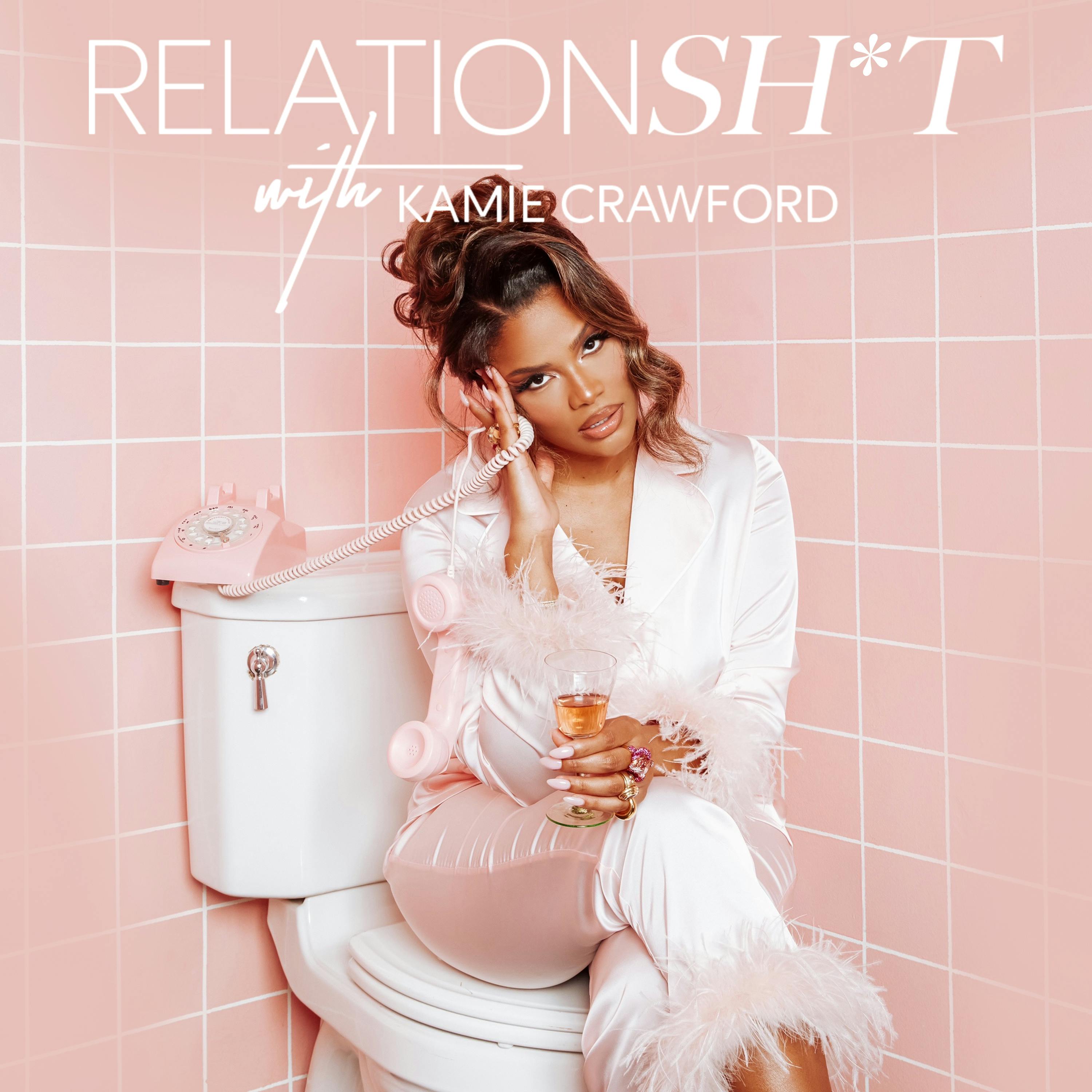
Relationsh*t with Kamie Crawford
Kamie Crawford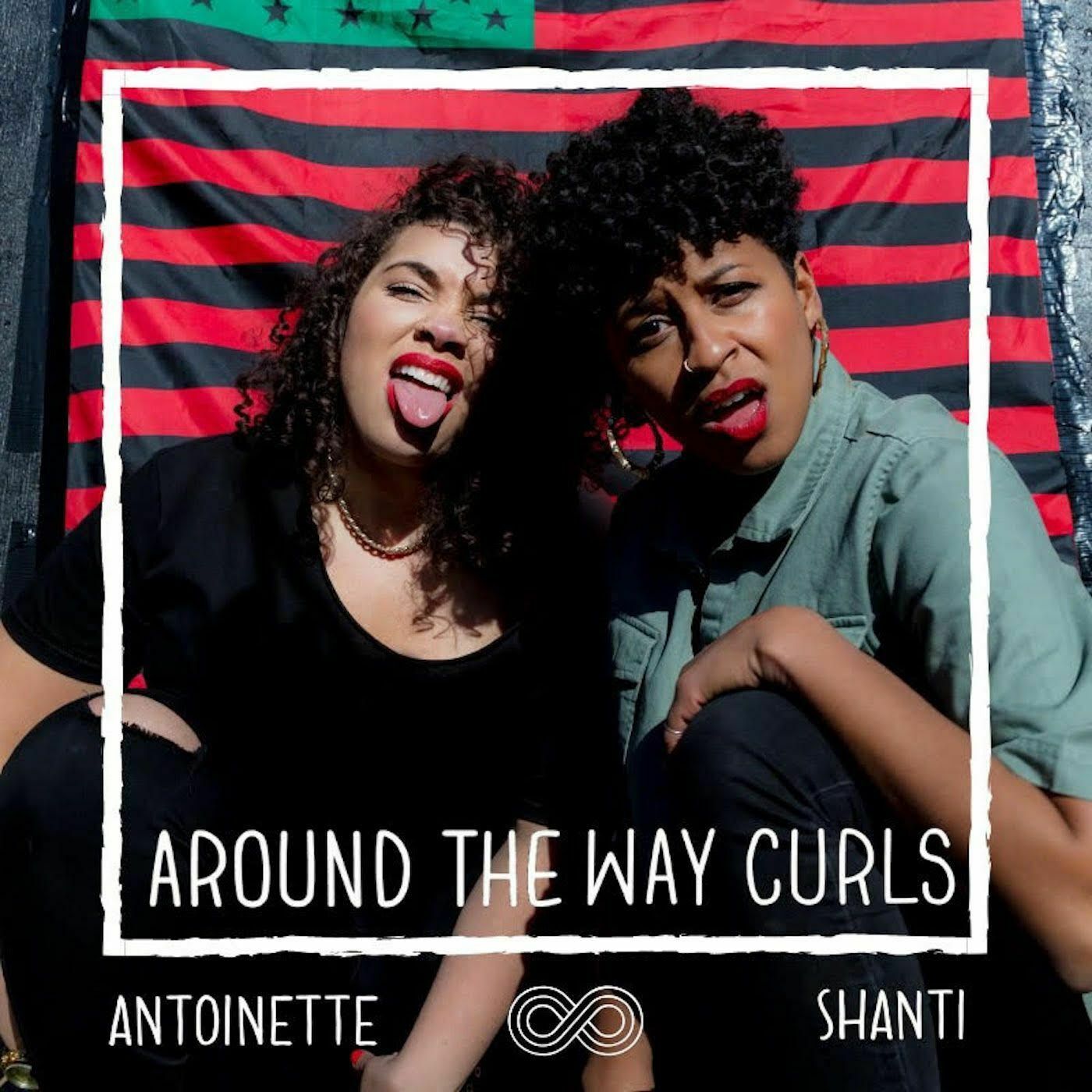
Around The Way Curls
Antoinette Lee & Shanti Mayers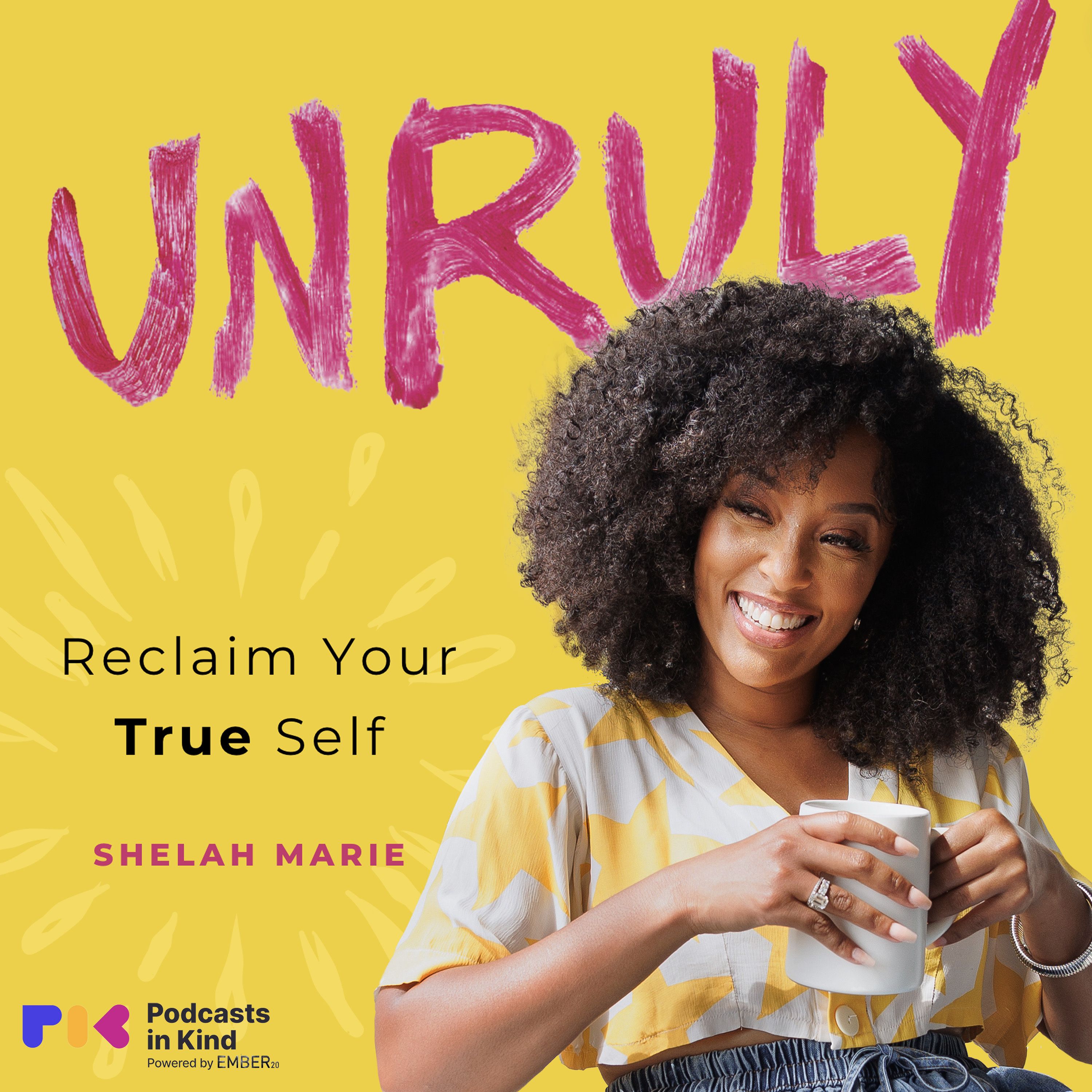
UNRULY WITH SHELAH MARIE
UNRULY WITH SHELAH MARIE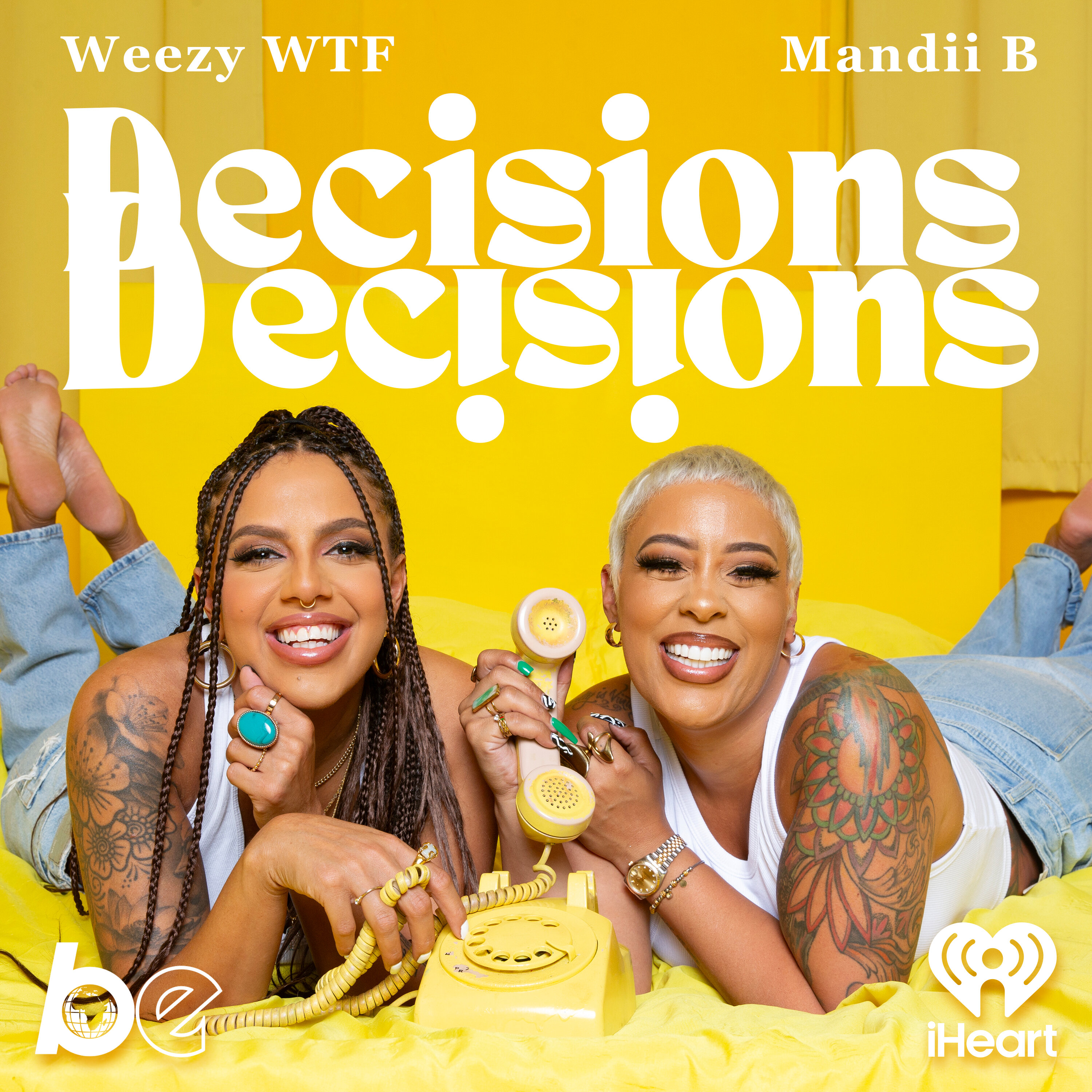
Decisions, Decisions
The Black Effect and iHeartPodcasts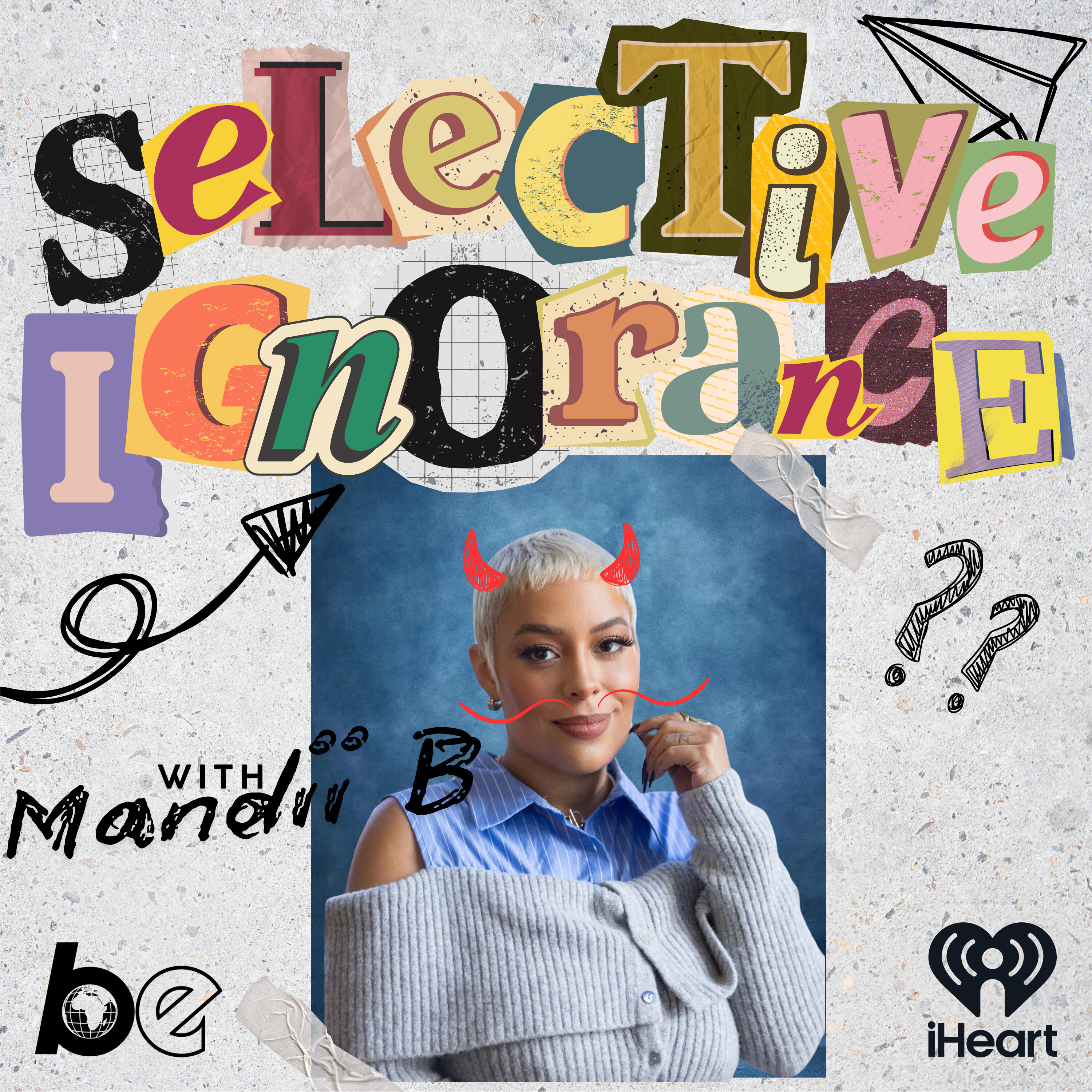
Selective Ignorance with Mandii B
The Black Effect and iHeartPodcasts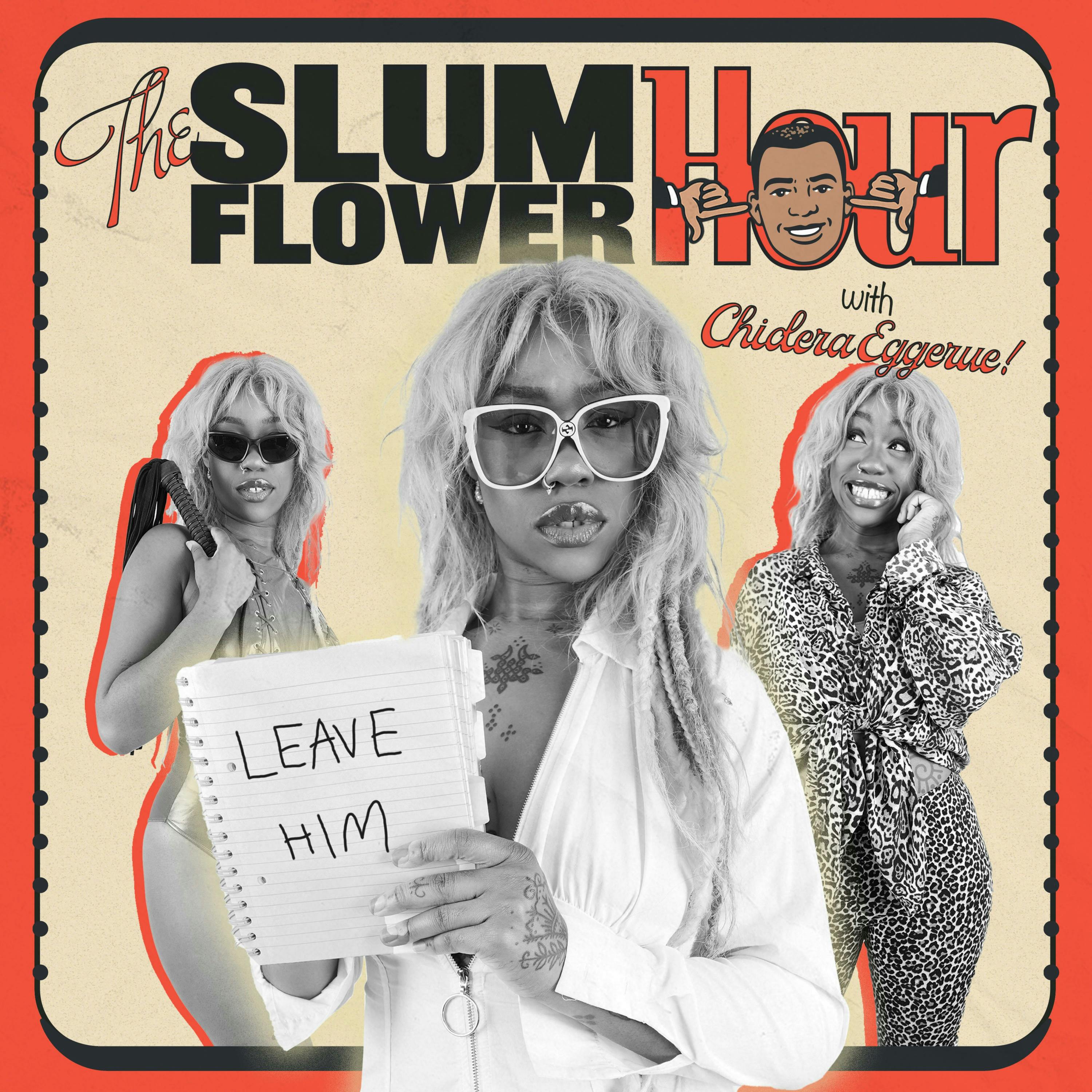
The Slumflower Hour
Chidera Eggerue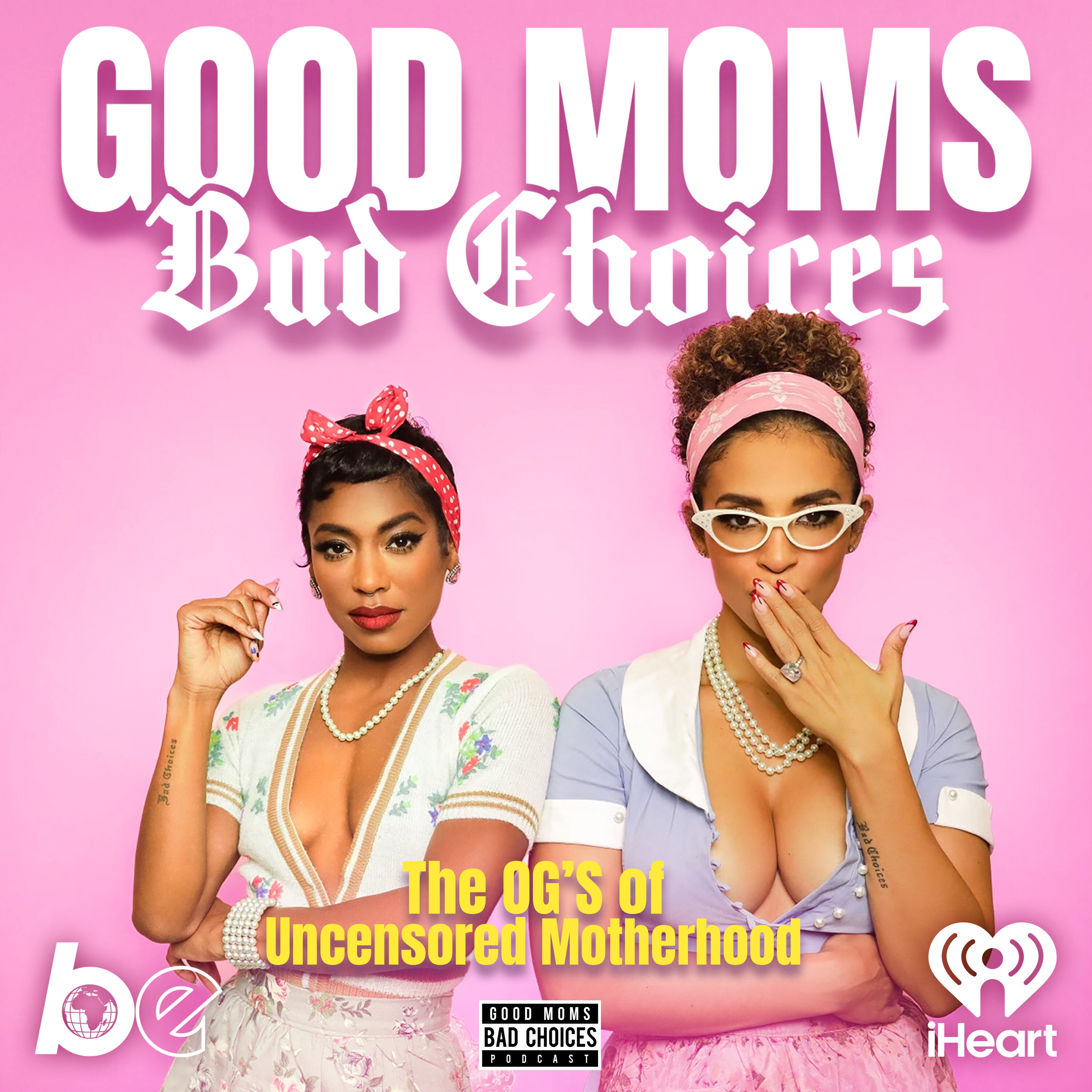
Good Moms Bad Choices
The Black Effect and iHeartPodcasts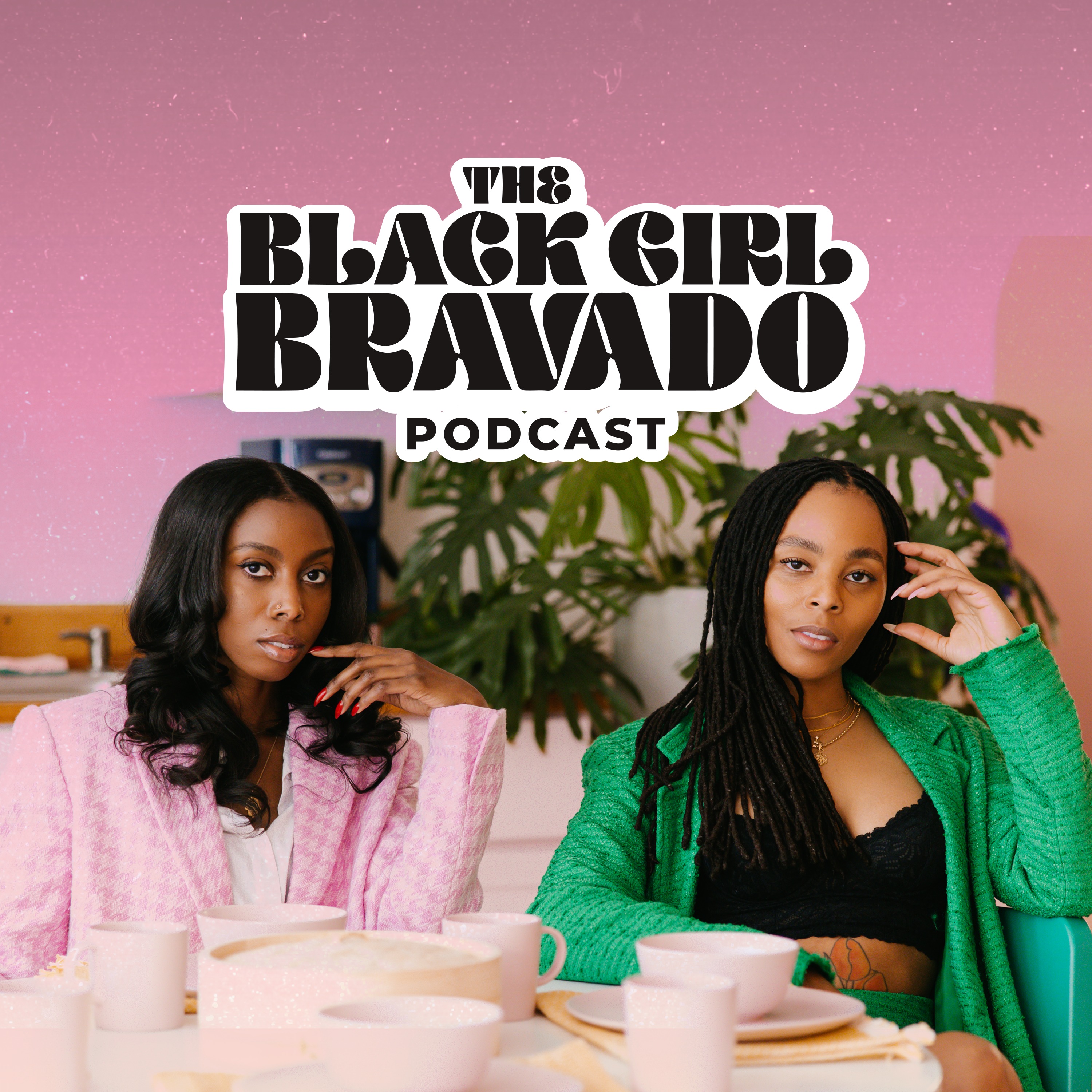
The Black Girl Bravado
Black Girl Bravado
Slay Girl Slay
Ashley Leggs
She's So Lucky
She's So LuckyUpstream
Upstream
SpeakEZ Black Renaissance Podcast
Qadry Harris, M. Div.
Bobo's Void
Bobo, Donavon and Mango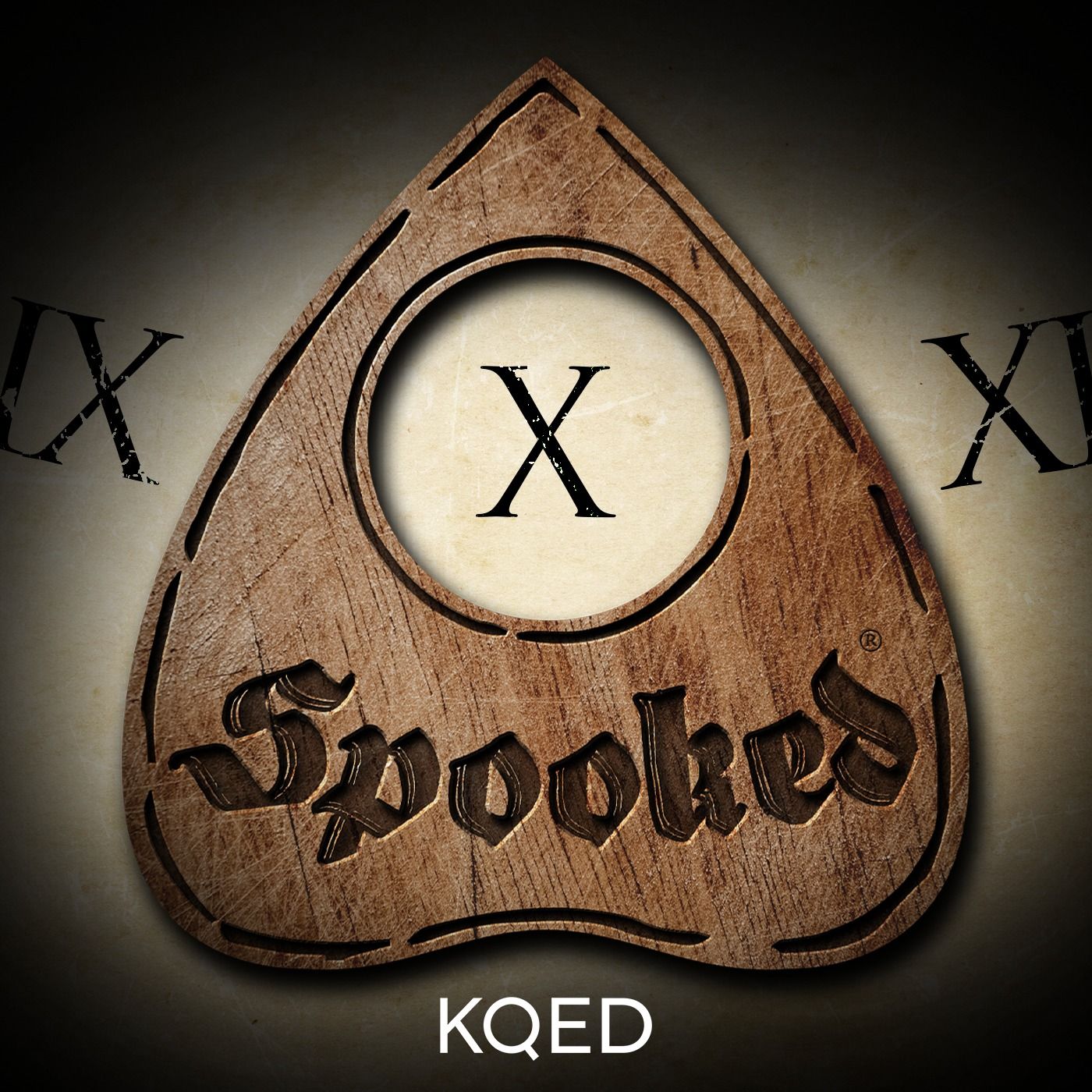
Spooked
KQED and Snap Studios
Caribbean Mystics
SpectreVision Radio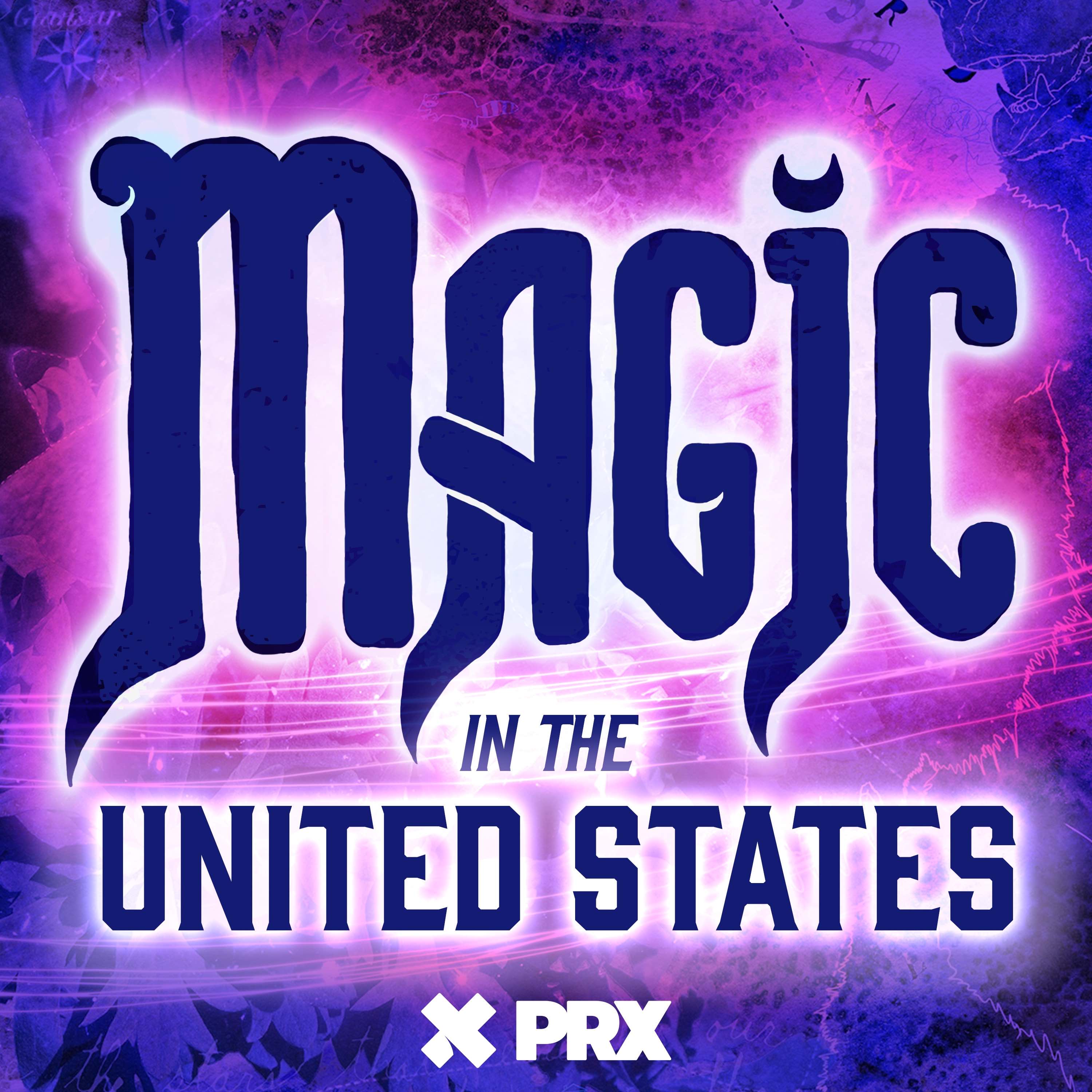
Magic in the United States
Magic in the United States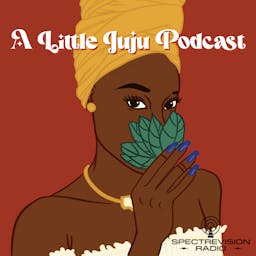
A Little Juju Podcast
SpectreVision Radio
Sensual Faith Podcast with Lyvonne Briggs
Lyvonne Briggs
Our Ancestors Were Messy
Nichole Hill
The Bankrupt Millionaire
Samia Burton
The Love Seat
Lauren Speed-Hamilton and Cameron Hamilton
CultureCon Uncut
Spotify Studios
Hold For Maintenance
Hold For Maintenance

